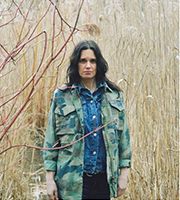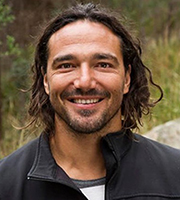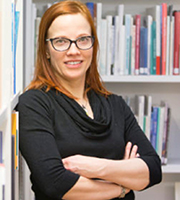'A Profound Reorganising of Things' conference
The Australian Centre is excited to announce the upcoming international conference titled 'A Profound Reorganising of Things' from 13 to 15 November 2023 at the University of Melbourne.
'A Profound Reorganising of Things' will delve into how contemporary injustices are enmeshed in colonial power relations, focusing on the co-constitutive relationship between climate change and colonialism.
Call For Papers
A call for papers is now open. The Centre invites proposals for papers, workshops and creative contributions that explore the following broad topics:
- Sovereignty, Country and Climate
- Flood and fire, food and medicine
- A profound reorganising of relations to land (and each other).
- Economy and Innovation – renewable energy on Country
- Climate justice, climate and justice
- Futures, futurity and the next generation
In early 2022, for the first time in its 34-year history, the Intergovernmental Panel on Climate Change (IPCC) inched further toward acknowledging what Indigenous Peoples and First Nations have long known: that colonialism is a catastrophic environmental violence (Funes, 2022). The IPCC report named colonialism as a driver and exacerbator of the harms of climate change. What this overdue recognition understates, however, is the fact that climate change and colonialism are co-constitutive, rather than some more benign consequence of history. Indeed, as Red River Métis/Michif pollution scientist Max Liboiron (2021) argues, climate change is an inevitable manifestation of global colonial land relations: not merely the effect or symptom of colonial violence, but the enactment of this violence in and of itself.
Global failure to understand and engage with the colonial roots of the impending climate catastrophe both constrains our collective capacities to untangle this wicked problem and simultaneously works to secure settler futurity and white supremacy. This dynamic is mirrored in other political, economic, and social spheres in settler colonies: the incarceration of Bla(c)k, Indigenous, and peoples of colour; the gross and increasing economic divide between rich and poor both on global and domestic scales; the detention and mistreatment of asylum seekers and refugees; poor health outcomes for Indigenous Peoples; as well as myriad other inequities and injustices, all of which can be traced to the corrupt land relations of (settler) colonialism.
Understanding these issues in this way holds systems and relations of power to account. It enables these violences to be understood as products of the complex entanglements of power that sustain settler occupation of Indigenous lands. That is to say, the incarceration of Indigenous peoples in so-called Australia is deeply implicated in the warming of the planet, is deeply implicated in the offshore detention of asylum seekers, and so on.
First Nations scholars and activists have led in the struggle to dismantle these corrupt relations, and continue to refuse, reject, and resist the terms of the settler order; to both dissect and dismantle colonial institutions and their violent excesses and reinvigorate 'Indigenous systematic alternatives'. This aspiration is towards what Michi Saagiig Nishnaabeg scholar Leanne Betasamosake Simpson calls 'radical resurgence'; a deeply political project that requires 'an extensive, rigorous, and profound reorganizing of things' (in As we have always done: Indigenous freedom through radical resistance. pp. 48-49).
View the submission guidelines
About the Conference
The Australian Centre presents an exciting conference that will delve into how contemporary injustices are enmeshed in colonial power relations with a focus on the co-constitutive relationship between climate change and colonialism. The conference will bring together First Nations and settler scholars, policymakers and public servants, artists and community organisations to build relations, share knowledge, and respond to some of the most pressing issues of our time.
The conference seeks to examine what might inform, shape, and give life to a radical reorganisation of our social, political and economic worlds. It invites participants to consider how contemporary injustices are enmeshed in relations of colonial power and explore how we might (re)imagine – and indeed already are (re)imagining – more just futures.
Keynote Speakers
Dr Leanne Betasamosake Simpson

Michi Saagiig Nishnaabeg scholar, writer and artist Dr Leanne Betasamosake Simpson teaches at the Dechinta Centre for Research & Learning in Denendeh. Their work crosses the intersections of politics, story, and song—bringing audiences into a rich and layered world of sound, light, and sovereign creativity. Dr Simpson is widely recognized as one of the most compelling Indigenous voices of her generation.
Professor Michael-Shawn Fletcher

Wiradjuri geographer and scientist Professor Michael-Shawn Fletcher is Director of Research at the Indigenous Knowledge Institute, University of Melbourne. Their research concerns the long-term interactions between humans, climate, environmental disturbance, and vegetation at local, regional and global scales.
Professor Rauna Kuokkanen

Sámi scholar Professor Rauna Kuokkanen is Professor of Arctic Indigenous Studies at the University of Lapland (Finland) and Adjunct Professor of Indigenous Studies and Political Science at the University of Toronto. Their research focuses on comparative Indigenous politics and law, Indigenous feminist theory, Arctic governance, and settler colonialism.
Important Dates
- Abstract submission deadline: 26 June 2023
- Notification of acceptance: 26 July 2023
- 'A Profound Reorganising of Things' Conference: 13 - 15 November 2023
Additional information
Conference registration will open shortly.
Registration fees:
- Full: $300
- Student/unemployed: $80
- Pay it forward: $450–$600
- Indigenous participants: Free
The conference will be free to all First Nations participants. Concession tickets and scholarships will also be made available for community members and organisations. We do not want cost to be a barrier to participation so please contact us at aust-centre@unimelb.edu.au to discuss.
Participants are responsible for their own travel/accommodation costs.